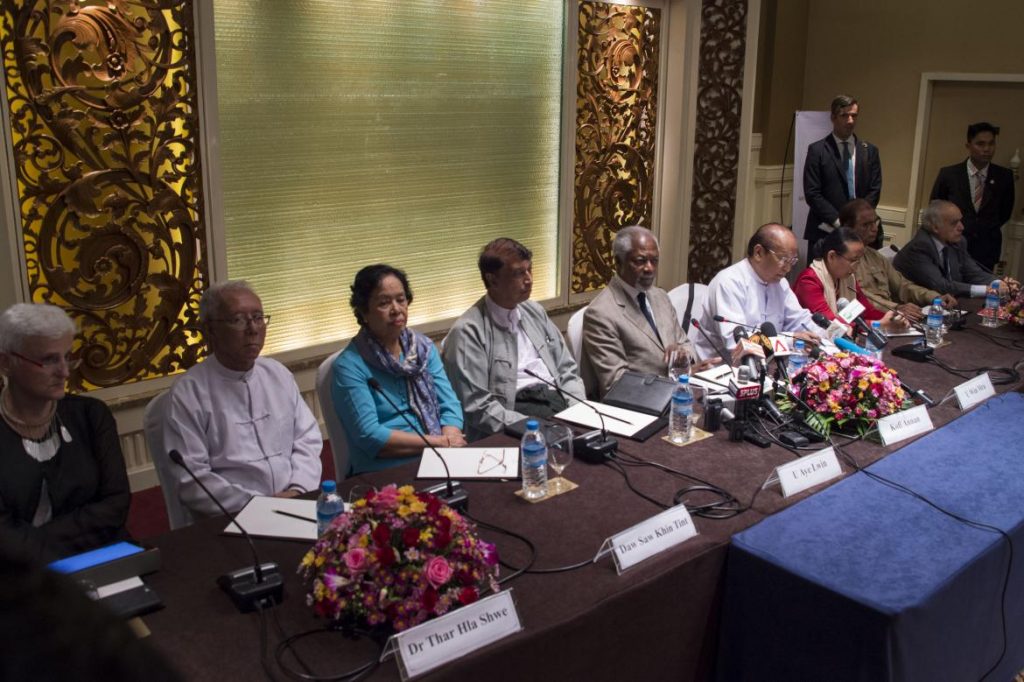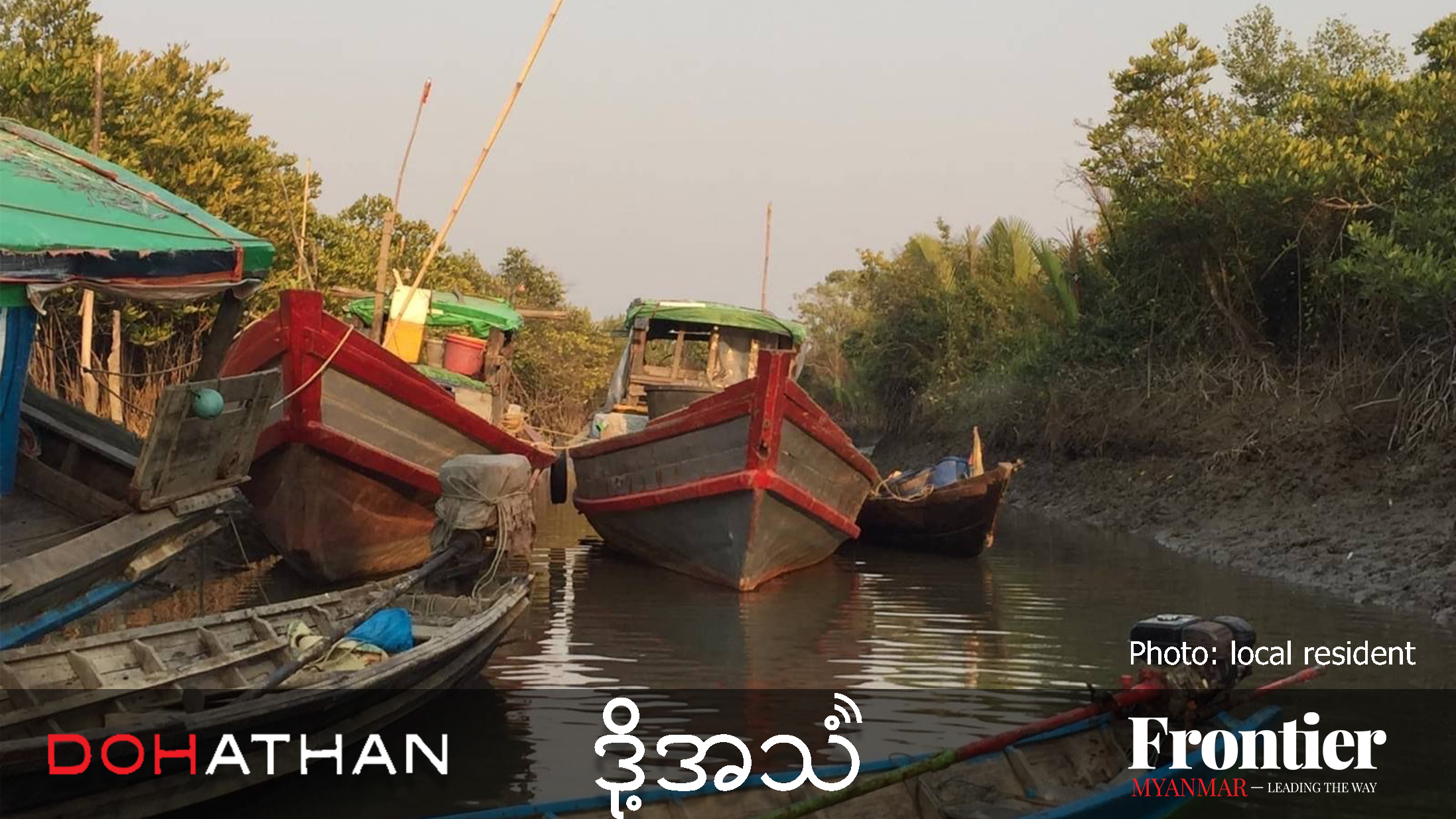A statement by 11 political parties calling for the dissolution of the Rakhine State Advisory Commission has elicited dismay and regret from Daw Aung San Suu Kyi.
By SITHU AUNG MYINT | FRONTIER
WHEN IT became obvious last November that the National League for Democracy was heading for a landslide election victory, party leader Daw Aung San Suu Kyi urged her supporters not to gloat. After becoming de facto government leader earlier this year, Aung San Suu Kyi has spoken with national reconciliation in mind. She has rarely, if ever, publicly criticised the former ruling Union Solidarity and Development Party, the Tatmadaw or any other elements that have displayed antagonism toward the NLD.
But during her recent visit to the United States, the gloves came off somewhat when she referred to critics of her government’s decision to establish the Rakhine State Advisory Commission headed by former UN secretary-general, Mr Kofi Annan.
In the State Counsellor’s first address to the United Nations General Assembly as the nation’s de facto leader on September 21, she referred to “persistent opposition from some quarters to the establishment of the commission”.
She said that her government was “determined to persevere in our endeavour to achieve harmony, peace and prosperity in the Rakhine State”.
Support more independent journalism like this. Sign up to be a Frontier member.
“By standing firm against the forces of prejudice and intolerance, we are reaffirming our faith in fundamental human rights, in the dignity and worth of the human person.”
The nine-member Rakhine State Advisory Commission has faced criticism since it was created just over a month ago.
The criticism has centred on the way the commission was established and its inclusion of three foreigners.
The first objections were voiced by Eleven Media and leaders of the Arakan National Party, an ethnic Rakhine political party.
During debate in the Pyithu Hluttaw on September 6 on an ANP resolution to have the three foreigners removed from the commission, a member of the party’s central executive committee, U Oo Hla Saw (Mrauk-U), questioned whether Aung San Suu Kyi in her capacity as state counsellor had the authority to establish the commission.
A military MP said that as the state counsellor was accountable to the Hluttaw, she should have sought its approval to appoint the commission.
The NLD majority in the Hluttaw saw the resolution defeated by 250 votes to 148 but that was not the end of the matter.
On September 14, a resolution condemning the commission was approved by the Rakhine State assembly, in which the ANP controls 23 of the 35 elected seats.
The resolution said that as the commission was not formed with the agreement of “national citizens of Rakhine” its existence and actions should not be acknowledged. The decision to refuse to cooperate with the commission has the potential to create tensions between the regional assembly and the Union Parliament over issues involving the constitution and the law.
There was a further attack on Aung San Suu Kyi and the NLD over the commission on September 16, when the main opposition Union Solidarity and Development Party, the ANP and nine smaller parties issued a joint statement calling for the panel to be dissolved because they regarded it as being “illegitimate”.
The State Counsellor was quoted as saying in New York on September 17 that she found the statement “very upsetting” because it amounted to an attempt at political interference in the work of the commission.
“The commission is trying its best to benefit the people, but there are some who do not want it to be successful in its aims,” she added at a meeting with compatriots at the Myanmar consulate in New York.
She also noted that the appointment of the commission had resulted in the Organisation of Islamic Cooperation deciding not to propose a resolution critical of the human rights situation in Myanmar at this year’s session of the UN General Assembly’s third committee, which deals mainly with human rights issues.
The problematic circumstances of the Muslim community in Rakhine are long-standing. They have persisted because of mishandling by previous military governments and efforts to exploit the situation for political advantage, including before the flawed 2010 election.
Unlike previous governments, since taking power the NLD has chosen neither to exploit nor to ignore the situation. As it said when it announced the appointment of the advisory commission, the NLD government has taken on the responsibility of trying to find a sustainable solution to the “complex issues” in Rakhine.
If political parties that oppose the commission seek to exploit the situation for their benefit, it will not be the NLD that suffers, but the country and its people.







